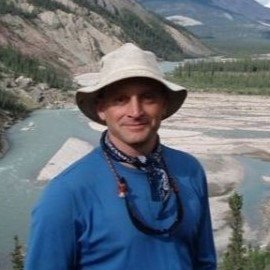Hér má nálgast námskeiðslýsingar allra námskeiðanna sem í boði eru. Einnig má sjá skipulag námsins í sameiginlegri kennsluáætlun Sjávarbyggðafræði og Haf- og strandsvæðastjórnunar.
Námskeiðin uppfylla kröfur ýmissa stéttarfélaga um námsstyrki. Vor- og sumarannir eru tilvaldar fyrir háskólanemendur sem vilja stytta námstímann í reglubundnu námi.
Fyrirspurnir sendist á kennslustjóra Háskólaseturs.
Marine Renewable Energy
- Spring 2024
- Næsta námskeið: 18. mars - 27. mars 2024
- CMM/CRD Elective Course | 4 ECTS
- Námskeið:CMM36
- Kennari: Dr. John Colton
Um námskeiðið
This course explores marine renewable energy (MRE) potential in our ocean and other current environments. This would include wave, tidal, offshore wind and even the less known but viable technologies such as ocean energy thermal conversion (OTEC), and salinity gradient. Heavy investment by the EU to support a Blue Economy and federal, provincial, and state investments in Canada/US is increasing growth in the MRE sector. We explore the many factors that support MRE project development. Examples include understanding the technologies, policy to support MRE, environmental and socioeconomic impacts, and marine spatial planning with respect to MRE. Case studies highlight examples of MRE across Europe, North America, and increasingly in Asia and the South Pacific. Students develop a strong sense of the overall planning approach to MRE and key tools/frameworks to facilitate sustainable growth of the sector. When possible, field trips offer an opportunity to explore the power of the ocean and currents first hand with innovative work occurring in the region of the Westfjords.
Kennari
has worked at Acadia University in Wolfville, Nova Scotia for over 20 years in the Community Development and the Environmental and Sustainability Studies programs. His research areas span the terrestrial and marine environments and are often applied in nature focussing on meaning community outcomes. An example of this might include the Business and Community Toolkit for Tidal Energy Development or the Tidal Energy Community Engagement Handbook.
John has worked extensively in First Nation communities on economic development initiatives and more recently with rural coastal communities and local and provincial governments exploring the potential of MRE. He's particularly interested in the nature of community benefits and processes that support social acceptance (or not) or MRE development. He is a founding member of the Acadia Tidal Energy Institute and serves as head of department for Community Development.
John has also worked in the adventure/ecotourism tourism guiding wilderness river expeditions to remote areas in Alaska, British Columbia, the Yukon and Northwest Territories since the late 1980’s with Canadian River Expeditions.

Kennsluskrá
This course provides an overview of the marine renewable energy sector by focusing on the history of marine renewable energy development, environmental effects, marine spatial planning, device technology and transmission issues, finance and risk mitigation, socio-cultural impacts, and stakeholder and community engagement. Students will explore these issues through case studies focusing on the Bay of Fundy (Nova Scotia, Canada) and the Orkney Islands (United Kingdom). The course is grounded in theory and applied learning opportunities that enable students to assess marine renewable energy issues through professional tools and other applied resources.
On completion of the course, a student:
- can describe the social, political, cultural, and environmental issues related to marine renewable energy development.
- can interpret the Pathways of Effects framework for predicting environmental responses to marine renewable energy development.
- can identify processes that support community and stakeholder engagement in marine renewable energy development.
- has demonstrated an understanding of the marine renewable energy development process through case study analysis and development of a marine renewable energy project course exercise.